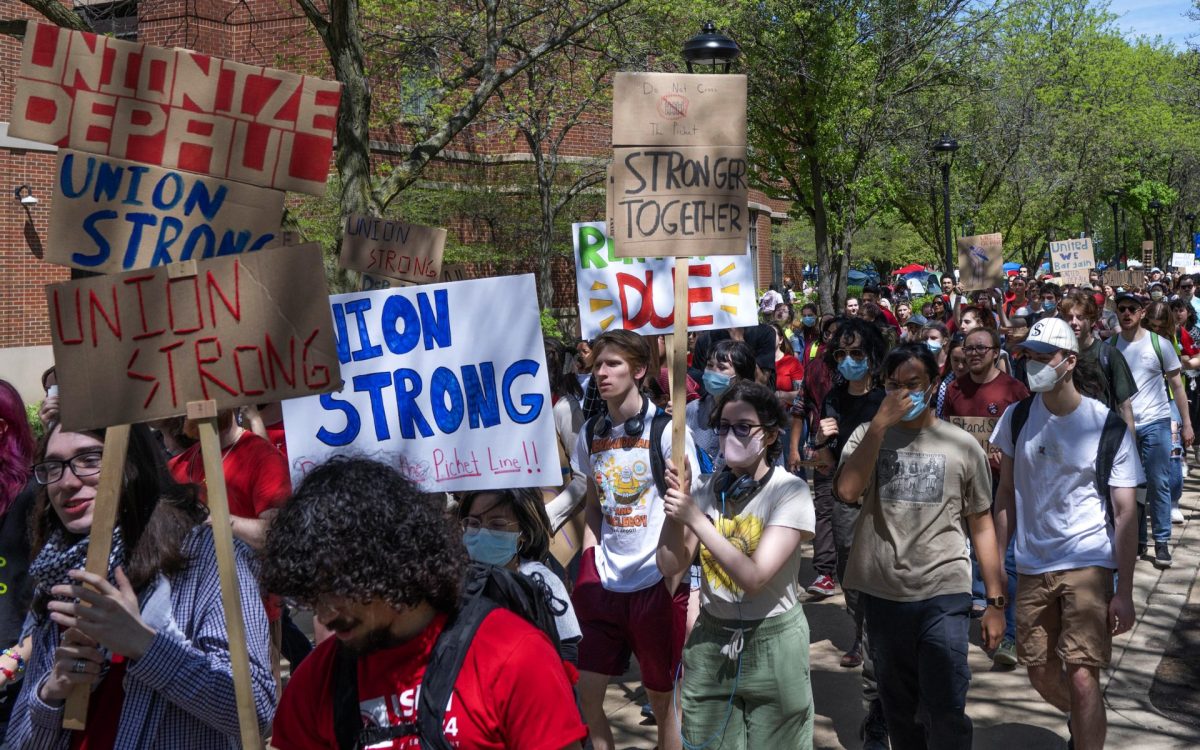During the course of two meetings hosted by the Student Government Association, discussion was dominated by the decline in enrollment, financial aid, and keeping tuition costs affordable. The meetings which took place on September 19 and 26 created a forum for Administration officials to talk to students about the budget and tuition setting process.
“Before the tuition pricing and strategic resource allocation committees even started meeting, I decided it was extremely important to have two SGA-sponsored sessions that focused on all of the aspects of the university’s budgeting process,” said SGA president Casey Clemons. “The rationale behind having these sessions was to make (it) transparent to students.”
Tuition Dependent University
“Eighty Five percent of the universities budget comes from tuition,” Alyssa Kupka, Associate Vice President for Academic Fiscal Aid, said. Being a tuition dependent school means DePaul is reliant on the revenue from tuition to continue to operate. Enrollment for this year decreased by 1.7 percent or 423 students.
The decline in enrollment is representative of a nationwide decline in higher education. At DePaul, the College of Education, College of Law, and the School for New Learning saw the steepest declines in enrollment, also consistent with national trends.
“Anywhere where an immediate connection to a job isn’t visible is seeing difficulties,” David Kalsbeek, Senior Vice President for Enrollment Management and Marketing, said. Enrollment in different colleges is a market-driven result, Kalsbeek said. He related the lower enrollment to the downturn of hiring in the job market. He also mentioned that like the job market some colleges are seeing growth, referencing that College of Digital Media and Collage of Science and Health saw growth this year.
The University budget for the 2013-2014 academic year projects the university will make $630,623,467 from tuition revenue.
The school projected to be the biggest earner for the university is the College of Liberal Arts and Sciences, projected to bring in $182,605,050 or about 29 percent of the total revenue from tuition.
Financial Aid
The second biggest expenditure for DePaul, after salaries and wages for Staff, is financial aid for students. DePaul plans to spend 24 percent of its operating budget this year on financial aid.
“I know for a fact that the Vincentian mission is extremely present in every facet of the tuition pricing and budgeting processes at DePaul,” SGA President Casey Clemmons said. “A testament to this is the amount of financial aid that is budgeted every year.”
In addition to financial aid provided by the school, many DePaul students receive aid from the state and federal grants.
In recent years, however, the state has been moving the cut off date for applying for MAP grants up. Last year the state moved the cut off date to March. Paula Luff, the Associate Vice for Financial Aid, warned students that the cut off date may be moved up to Feb. 1.
It’s been a back a fourth process with the state over MAP grants, Bob Kozoman, Executive Vice President of DePaul, said. At one point the school went nine months without receiving a check from the state according to Kozoman.
Setting Tuition
In 1983 DePaul was a bare bones, no frills institution Kozoman said. Since then, the school has shifted its priorities from keeping tuition as low as possible to trying to increase the quality of services and expand the services offered at DePaul.
“The primary factor in setting tuition is the cost of institution goals not just for today but also for tomorrow,” Kupka said.
Tuition is set each year by the Tuition Pricing Committee. The Committee is subdivided into three subcommittees that each have a representative from SGA. Clemons as SGA president is a voting member on the committee.
“SGA’s main priority in these meetings will be to actively voice the student opinion including students concern about rising tuition and to serve as a constant reminder to the administrators that they are ultimately here for students,” Clemmons said.
The process of setting tuition is a balancing act that has to account for fluctuations in enrollment, graduation rates, being competitive with similar schools to DePaul and keeping tuition affordable for students.
Cost Containment Strategies
To keep tuition from raising and to help make up for lost revenue from the decline in enrollment, the Administration has put into effect several policies designed to save money.
The largest money saver of these is the administration’s decision to put a moratorium on outside hiring. In effect, not allowing colleges to fill positions that have been that have been vacated, without approval.
According to the budget for this academic year, the policy is projected to save the school $5,800,000.
Other policies the school has put in place range from offering faculty voluntary unpaid vacation days, to not providing drinks at university events.
If the downward trend for higher education continues the University may have to look to selling select pieces of property, according to Kozoman.
“We are running a business,” Kozoman said. “Its a wonderful business, but the end of the day its a business and will cease to exist if it can’t pay its bills.”







